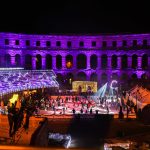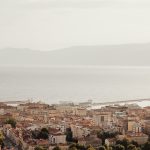Life in Pyongyang – a young Croatian football team’s impressions after taking part in an international tournament.
“We did not even know about the incidents on the border between the two Koreas. Only on Monday, when ambassador Nebojša Koharović and consul Hrvoje Ćiković came from Beijing did they jokingly tell us that they came to see us in the ‘concentration camp’, referring to the reports in the Croatian media. Only then did we find out about the situation on the border, but we were told that things like that happen there all the time. There were two teams from South Korea with us, and they were not nervous at all”, said Dunja Babić, secretary of the football school of Segesta Football Club from Sisak and one of five adults who accompanied 19 young footballers of Segesta who took part in the football tournament in Pyongyang, the capital of North Korea. Although they could watch BBC and Al Jazerra, they did not perceive the problems at the border so dramatically as the Croatian public did, reports Vecernji List on August 31, 2015.
Segesta decided to go to the tournament relatively quickly, after Osijek decided to withdraw. There was some reluctance. The Ministry of Foreign Affairs told them that they cannot recommend the trip, but a similar recommendation is given for many other Asian countries.
“The organizer of the tournament were crucial. They want to use sport to bring closer the peoples of the two Koreas and to foster the idea of unification. One year, the tournament is held in South Korea, and another year in North Korea. We had confidence in the organizers and only a few parents refused to let their children travel. Of the 28 players, 21 had parents’ permission to go, but we could not take everyone”, said the chairman of Segesta Branimir Pupić Jovanović.
The organizers paid all the costs, estimated at half a million kuna. Teams from South and North Korea, Brazil, China and Uzbekistan took part in the tournament. “They were great hosts, we were treated like a real senior football team. While we were warming up in the dressing room, a waiter came in with large trays of fruits and left. We could not believe it”, said 14-year-old Deni Jergović, who was especially popular among Koreans due to his blond hair. “All the time they were trying to take a picture of me. I will forever remember the hospitality, the stadium and the atmosphere during the opening and closing ceremonies.”
“In North Korea, everything is clean, on the streets there is no garbage, grass is all neatly mowed. Sports centres are all well maintained and you cannot even know how old they are. People are very friendly, and in our hotel tourists were daily coming and going. Most of them are from China, but we have met a Slovenian woman and a man from Zagreb who came to the concert of Laibach, which took place while we were there”, said Dunja.
“We were warned that the images of the Great Leader must not be filmed, but there were no other bans. They did not check our luggage. We had a guide, interpreter and driver with us. However, discipline was clearly visible. North Koreans who were with us at the hotel were very quiet and withdrawn at first, while we and the Brazilians were noisy. Later, everyone relaxed, except the Chinese”, added Dunja.
The footballers have brought a lot of souvenirs from North Korea, including the local currency – won. They say that everything is very cheap there. “For three dollars, I bought three juices, two bags of jelly beans, two small packages of chocolate and still had some money left. Koreans have asked me to give them kuna banknotes as souvenirs”, said Dani Jergović.
He added that they all gained a lot of new friends on Facebook. Unfortunately, North Koreans are not among them. They have no social networks, but they do have cell phones, and a national mobile network to which foreigners cannot connect. They communicated using Viber from the hotel, but the Internet connection in North Korea is still via modem.
Segesta has received an unofficial invitation for the tournament which will be held next year in South Korea, in Seoul, but it is too early to decide. The club wonders, somewhat ironically, how will the public in Croatia react if they were to travel to Seoul, which is only 60 kilometres away from the demilitarized zone, when they were supposedly “threatened” in Pyongyang, which is 600 kilometres away from the border.







